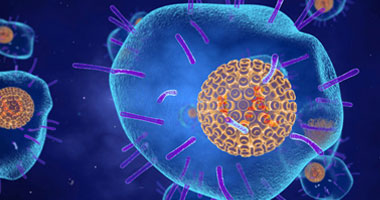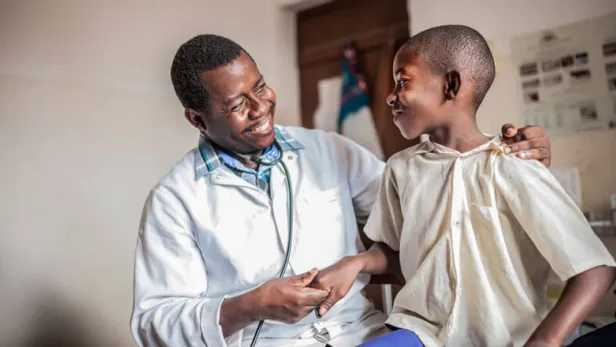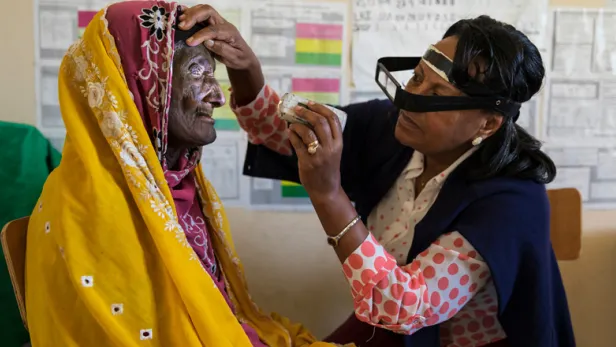Though microscopic, bacteria and viruses can have massive implications for human health. Bacteria are tiny organisms that consist of a single cell,1 and viruses are pieces of genetic material (DNA or RNA) contained in protein cases.2 Both are among the most common causes of infection.3 Bacterial and viral infections happen when bacteria or viruses enter the body, reproduce, and cause disease.4,5
Bacterial infections and viral infections can range from mild to severe. Some may go unnoticed, but others can be deadly.5
What are bacterial and viral infections?
Bacteria and viruses are everywhere. While some can make us sick, others are harmless or even support our health.6 Bacteria causes bacterial infections, some of which can be treated with antibiotics. Viruses cause viral infections, which cannot be addressed using antibiotics.7
Before a bacterial or viral infection can begin, viruses and bacteria first need to enter the body.4 They can get in through sources such as food, water, and wounds. Insect and animal bites can also transmit viruses and bacteria to people.6
Simple contact with viruses and bacteria can lead to viral infection and bacterial infection. For example, someone may fall ill after touching a contaminated surface and then touching their eyes, mouth, or nose. People can also breathe in droplets spread through coughs or sneezes.6
How do bacterial and viral infections affect the body?
Bacteria and viruses become problematic when they lead to infections.4 In an infection, the bacteria or virus damages healthy cells, which can cause symptoms you feel when you are sick.8,9
Symptoms of bacterial and viral infections include but are not limited to:10
- Fever10
- Fast heartbeat10
- Anxiety10
- Fatigue11
- Decreased appetite11
- Pain11
- References
- Bacteria. National Human Genome Research Institute. https://www.genome.gov/genetics-glossary/Bacteria. Updated March 24, 2023. Accessed May 10, 2023.
- Virus. National Human Genome Research Institute. https://www.genome.gov/genetics-glossary/Virus. Updated March 24, 2023. Accessed May 10, 2023.
- Are all infectious diseases caused by viruses and bacteria? National Academies of Science, Engineering, and Medicine. https://www.nationalacademies.org/based-on-science/are-all-infectious-diseases-caused-by-viruses-and-bacteria. Updated May 20, 2022. Accessed May 17, 2023.
- How infections spread. Infection control. Centers for Disease Control and Prevention. https://www.cdc.gov/infectioncontrol/spread/index.html. Updated January 7, 2016. Accessed May 10, 2023.
- Infectious diseases. MedlinePlus. https://medlineplus.gov/infectiousdiseases.html. Updated February 14, 2018. Accessed May 10, 2023.
- Germs and hygiene. MedlinePlus. https://medlineplus.gov/germsandhygiene.html. Updated September 23, 2020. Accessed May 10, 2023.
- Viruses or Bacteria: What’s Got You Sick? Centers for Disease Control and Prevention. https://www.cdc.gov/antibiotic-use/pdfs/VirusOrBacteria-Original-P.pdf. Accessed May 10, 2023.
- Bacterial infections. MedlinePlus. https://medlineplus.gov/bacterialinfections.html. Updated June 28, 2018. Accessed May 10, 2023.
- Viral infections. MedlinePlus. https://medlineplus.gov/viralinfections.html. Updated August 31, 2016. Accessed May 10, 2023.
- Overview of infectious disease. Merck Manual. https://www.merckmanuals.com/home/infections/biology-of-infectious-disease/overview-of-infectious-disease. Updated September 2022. Accessed May 17, 2023.
- Bacteria, virus, fungi, and infectious diseases. Human Physiology, Biochemistry, and Basic Medicine. https://www.ncbi.nlm.nih.gov/pmc/articles/PMC7173549/. Published October 30, 2017. Accessed May 17, 2023.















